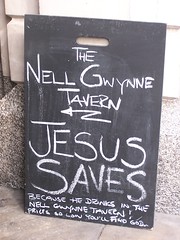Thanks to Jason Byassee, Executive Director of Leadership Education at Duke Divinity, a new post on their Call & Response blog describes my take on tradition and innovation in church life.

In a post titled 'Our "Tradition" is Often a Previous Era's Cultural Accomodation," I try to give church leaders a perspective that will open them to reconsidering not only the new religious movements which they often hate, but also their own religious traditions which they so very much cherish.
The post says:
The post says:
When new forms of religious vibrancy clearly manifest social change, critics are often quick to attribute their successes to crass appeals to popular tastes.
Here’s an example. I describe in my book “Hollywood Faith” how Oasis Christian Center, an evangelical church in Hollywood, California, grew from five hundred to over two thousand people from 2001 to 2003. Incorporation of entertainment, fun, relevance, and practicality in the promotion of spiritual vitality yielded this spectacular growth.
It is worth asking whether the growth and excitement evident at Oasis is due simply to placating a consumer-driven, popular culture. Is Oasis a secularized “church”? Is religion being compromised?
My main point is to urge recognition that no religious tradition exists which was not forged through a historical processes of accommodation and acculturation.
Working the delicate tension between relevance and ritual, between cultural resonance and cultural transformation, is a perpetual challenge for church leaders everywhere. I want to encourage church leaders to think more carefully about negotiating this tension in recognition that their cherished "tradition" are historical forms that represent cultural adaptations to a prior era.









